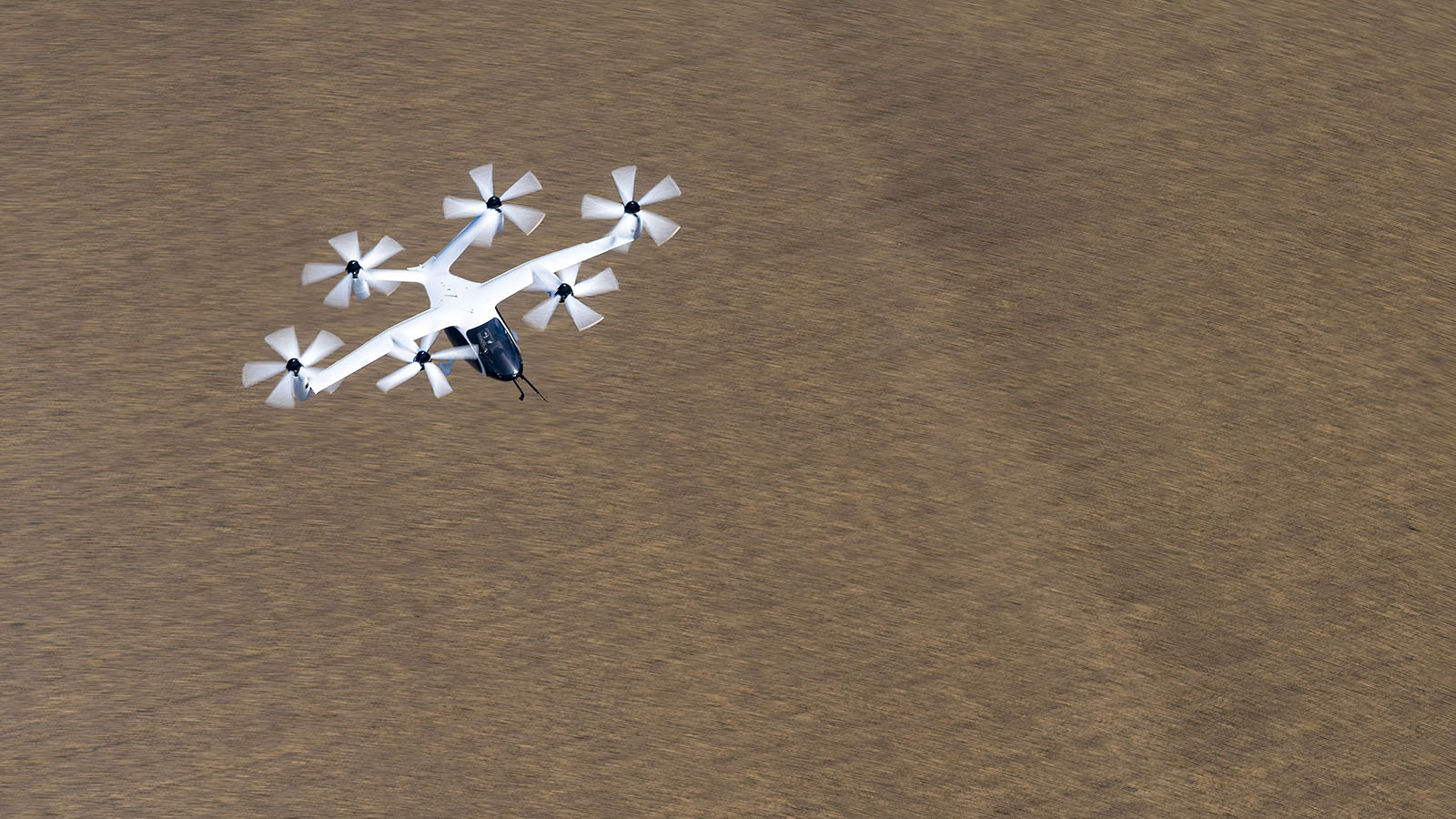Stay Up to Date
Submit your email address to receive the latest industry and Aerospace America news.
School is part of air taxi developer’s plan to begin carrying passengers next year
Joby Aviation has received the FAA certificate that permits it to begin training non-employees at the Aviation Academy it created in 2022 to ensure an ample supply of pilots for its planned fleet of S4 electric air taxis, the company said Dec. 3.
While the main goal is to “develop a pipeline of qualified pilots” for the S4s, the California company noted in a press release that the academy will also prepare students “for a career at Joby or other air operators.” Courses will include training for prospective private and commercial pilots, as well as instruction for instrument rating and becoming a certified flight instructor.
Pilot graduates will be certified to fly any conventional “aircraft that falls under the airplane, single-engine, land” category, Joby told me by email. However, since the S4’s design places it in the powered-lift category of FAA’s rules, additional pilot training and certification will be necessary for a pilot to fly an S4, the company confirmed.
For more about advanced air mobility, receive the True Mobility newsletter in your inbox.
Joby is unique among air taxi developers in creating such an academy. So far, it has trained only its own employees at its test and manufacturing facility in Marina, south of its Santa Cruz headquarters. But earlier this year , it leased facilities at Watsonville Municipal Airport, inland from Marina, to get ready to broaden the scope of the academy.
With the FAA Part 141 certificate, Joby can now accept applications from the general public, but the company did not say when it would begin doing so. The academy’s website invites visitors to sign up for emails “to get early notice of our aviation career courses for high school, college, and professional level students.”
Currently, training occurs in two Van’s RV-12 fixed-wing aircraft.
With the Part 141 certification, the company told me that “FAA has deemed our structured training syllabus sufficiently rigorous to allow Joby to certify pilots in a more streamlined fashion” than it had been doing under Part 61.
Part 141 governs the regulation of pilot schools. It requires a structured training program and generally requires 35 hours flight training, whereas training under Part 61 is individualized and generally requires about 40 hours of training.
Joby has flown multiple prototypes of the S4, which will each accommodate a pilot and four passengers and fly at speeds of up to 320 kph. The company has announced intentions to begin carrying passengers commercially in 2025, but has yet to receive an FAA aircraft type certificate. In the meantime, Joby has begun testing commercial air taxi operations by flying its own employees in a conventional Cirrus aircraft.
About paul brinkmann
Paul covers advanced air mobility, space launches and more for our website and the quarterly magazine. Paul joined us in 2022 and is based near Kennedy Space Center in Florida. He previously covered aerospace for United Press International and the Orlando Sentinel.
Related Posts
Stay Up to Date
Submit your email address to receive the latest industry and Aerospace America news.




